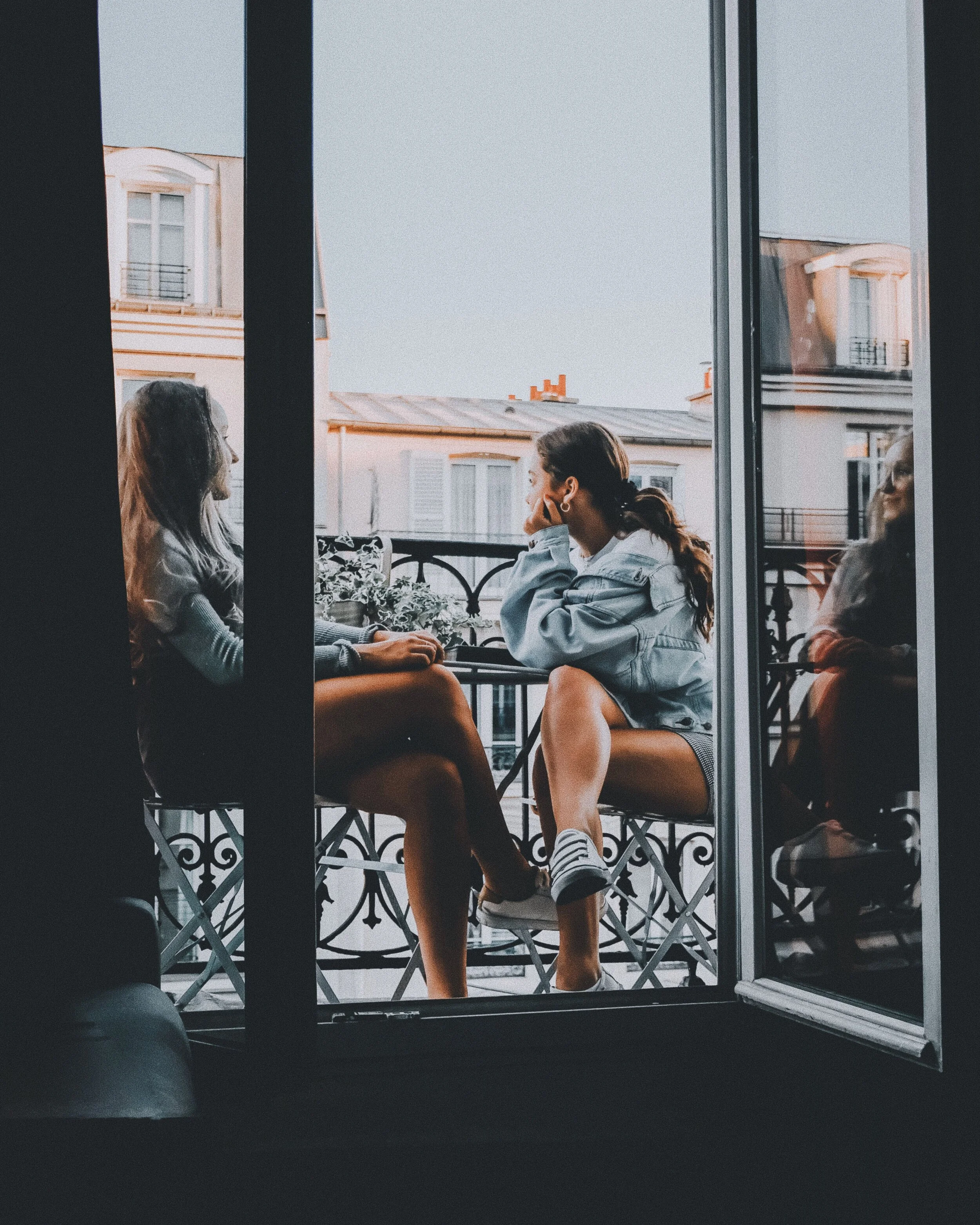Prayer for Rain

Prayer for Rain
Erika Veurink
“Before I can tell my life what I want to do with it, I must listen to my life telling me who I am.” — Parker Palmer
“In God we live and move and have our being.” — Acts 17:28
*
I prayed for a vocation. I prayed the way my grandpa prayed for rain. He tightened the request into a command. I wondered if life as a farmer made him a man of faith out of necessity. He closed his eyes on the head of the table and bowed his head. Like God in the garden, he spoke in the middle of the rustling plains, “Let there be rain.”
I laid on my best friend’s sofa and let my eyes soften the ceiling into swirls. There are prayers out of ecstasy, out of an overflow of compassion, out of borrowed hope. They dance around questions, effervescent in their eagerness to be lifted skyward.
But this was a prayer from despair. I needed a direction to aim toward, a target to close one eye and point at. “A tethering,” I prayed, “give me a stake to grow from.” The sunset on the neighboring Manhattan windows like lake water. The city swelled with its final give into the summer evening. I slept. I dreamed of hard edges, of absolute truths. When I awoke, everything was the same, just darker.
The Christian’s calling of vocation is a time-honored tradition of seeing a person’s gifts, the dialect they speak most naturally, as an indication of their holy work. As a child in Sunday School, I thought I might be a teacher, seeing the way my favorite afternoons were the ones I spent reading to my little sister. I thought I could be a wife, dressed as Mary in the school production. The vocation of motherhood appealed to me. It felt like I could confuse my responsibility for another person as a calling. I worked a summer in the cornfields. I checked inventory at the big box store next to the mall. I photographed upperclassmen getting married in barns. Work became louder than a vocation.
Max Neustaedter
After the night on the sofa, I took a long walk back into Brooklyn. I heard the phrase “Write your way out of it,” somewhere along the East River. I started small, fifteen minutes of uninterrupted writing every morning before I rushed to the train for work. I practiced seeing myself as a writer. I held the books on my shelves like totems. I signed up for a writing class. When I met with a professor from undergrad and asked her advice about graduate school, she said, “What has always felt easy to you?”
Understanding a vocation isn’t a formula, in the same way humans aren’t machines. We’re farms. We weather storms and dance to the song of the seasons. And the world needs the most vivid, transformed work we can offer. So we try on roles. We own our formation. What comes easiest, yes, but what comes deepest, after the noise and the handed-down truths, what rings the clearest?
As soon as I felt the gravitational tug of writing, I found teachers. I started with the Bible stories I grew up with: a problem, a flaw, a person, a savior, a resolution, an eternity, and went from there. My teachers were the swans on the lake in the middle of the lake in Prospect Park. My teachers were the boys I cared for, how everything mattered in their universes. My teachers were the bulbs in the backs of garages and the anthills under my feet. The world opened up to my vocation. It said something about softness, then about homecoming. It was good.
My work in graduate school has been the work of widening, of shrinking back down to size, and then filling the space between the high calling of art and the mandate of being human. I’ve learned about form. I’ve been taught the rules of telling stories: showing up, telling the truth, cutting it all up and taping it back together. One teacher asked me to follow my obsessions.
Another told me that wherever I saw myself, there I was. The meals I’ve shared with other writers have varied from stilted standoffs debating the divide between fiction and non to beers that last hours. Some of my closest friends are writers. When I send them my work, they say, good but even better, more.
I don’t know if my classmates believe in vocations. There are mornings I don’t either—mornings where the work feels meaningless and meandering, when I imagine the kingdom coming in politics or in discourse, not my page. But then I stop. And I remember I am a writer not out of necessity. I am a writer because there is not a more honest way of worship.
When I can’t write, I can always pray. And when I do, it stirs into sentences, drifts into the silence that must be God, and evaporates. There was something like quiet in the garden. In it, I’ve found what David Whyte named as, “my work, my water, my elemental home.”
Erika Veurink
Writer & MFA Student
Erika has been published in Brooklyn Review & Triangle House
Photography by Elle Suko
